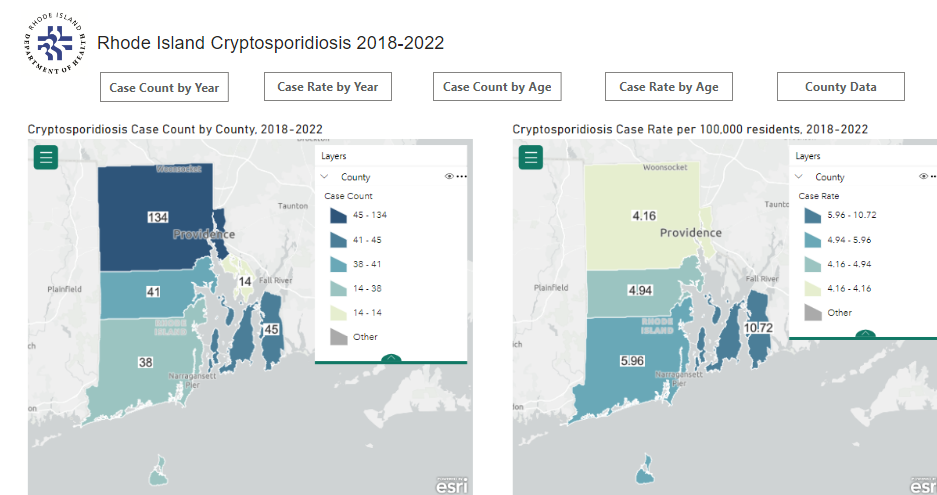Salmonella
Salmonella (Salmonellosis gastroenteritis) is a bacterial infection that usually lasts 4 to 7 days and that causes diarrhea, fever, and abdominal cramps 12 to 72 hours after exposure.
Symptoms
Most persons infected with Salmonella develop diarrhea, fever, and abdominal cramps 12 to 72 hours after infection. The illness usually lasts 4 to 7 days, and most persons recover without treatment. However, in some persons the diarrhea may be so severe that the patient needs to be hospitalized. In these patients, the Salmonella infection may spread from the intestines to the blood stream, and then to other body sites and can cause death unless the person is treated promptly with antibiotics.
The elderly, infants, and those with impaired immune systems are more likely to have a severe illness.
How It Spreads
Salmonella live in the intestinal tracts of humans and other animals, including birds. Salmonella are usually transmitted to humans by eating foods contaminated with animal feces. Contaminated foods usually look and smell normal. Contaminated foods are often of animal origin, such as beef, poultry, milk, or eggs, but any food, including vegetables, may become contaminated. Thorough cooking kills Salmonella. Food may also become contaminated by the hands of an infected food handler who did not wash hands with soap after using the bathroom.
Salmonella may also be found in the feces of some pets, especially those with diarrhea, and people can become infected if they do not wash their hands after contact with pets or pet feces. Reptiles, such as turtles, lizards, and snakes, are particularly likely to harbor Salmonella. Many chicks and young birds carry Salmonella in their feces.
Prevention
- Cook poultry, ground beef, and eggs thoroughly. Do not eat or drink foods containing raw eggs or raw (unpasteurized) milk.
- If you are served undercooked meat, poultry, or eggs in a restaurant, do not hesitate to send it back to the kitchen for further cooking.
- Wash hands, kitchen work surfaces, and utensils with soap and water immediately after they have been in contact with raw meat or poultry.
- Be particularly careful with foods prepared for infants, the elderly, and the immunocompromised.
- Wash hands with soap after handling reptiles, birds, or baby chicks (even if the animals are healthy), and after contact with pet feces. Assure that children wash their hands after handling a reptile or bird, or after touching its environment.
- Avoid direct or even indirect contact between reptiles (turtles, iguanas, other lizards, snakes) and infants or immunocompromised persons.
- Don't work with raw poultry or meat, and an infant (e.g., feed, change diaper) at the same time.
- Consider breastfeeding. Mother's milk is the safest food for young infants. Breastfeeding prevents salmonellosis and many other health problems.
Testing & Diagnosis
Many different kinds of illnesses can cause diarrhea, fever, or abdominal cramps. Determining that Salmonella is the cause of the illness depends on laboratory tests that identify Salmonella in the stool of an infected person. Once Salmonella has been identified, further testing can determine its specific type
Treatment
Salmonella infections usually resolve in 5-7 days and often do not require treatment other than oral fluids. Persons with severe diarrhea may require rehydration with intravenous fluids. Antibiotics, such as ampicillin, trimethoprim-sulfamethoxazole, or ciprofloxacin, are not usually necessary unless the infection spreads from the intestines. Some Salmonella bacteria have become resistant to antibiotics, largely as a result of the use of antibiotics to promote the growth of food animals.

